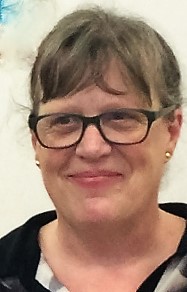| Pages in topic: [1 2] > | Poll: Do you think professional translators require a specific translation qualification to be successful? Thread poster: ProZ.com Staff
|
|---|
This forum topic is for the discussion of the poll question "Do you think professional translators require a specific translation qualification to be successful?".
This poll was originally submitted by Fiona Peterson. View the poll results »
| | | |
The world is full of unqualified translators, some of whom are very good and some of whom are very bad.
| | | |
It's all up the customer/client.
You could be armed to the teeth with qualifications, but it all boils down to whether or not you can deliver what the client wants. Success depends on your skills to be able to do this not qualifications. FWIW
| | | | Michael Harris 
Germany
Local time: 22:06
Member (2006)
German to English
What is the point of a university degree in translating and you have no idea about the subject?
| | |
|
|
|
Sheila Wilson 
Spain
Local time: 21:06
Member (2007)
English
+ ...
| No. However... | Mar 23, 2015 |
I think it's increasingly important to have a qualification to get started. With so many "I speak two languages" amateurs hoping to earn a few pennies/cents in their spare time, showing yourself to be serious about the job is really necessary. But once you have experience and testimonials, you don't need a piece of paper to be successful.
| | | |
Michael Harris wrote:
What is the point of a university degree in translating and you have no idea about the subject?
Everyone will need some kind of training to become a decent translator.
And most translations require no specialist knowledge anyway.
But if an engineer can learn how to write, a linguist can learn about engineering.
| | | |
I have no specific qualification in translation and yet I have been working as a translator for the past 40 years – part-time for 10 years in Portugal and full-time for over 30 years in Belgium…
| | | | | Qualification no, training yes. | Mar 23, 2015 |
The two should not be confused.
How you go/went about acquiring that training is another matter. If you want to fast forward the process, and not start later in your career for instance, then a translation degree is an excellent part of the fuller training process.
| | |
|
|
|
Ventnai 
Spain
Local time: 22:06
German to English
+ ...
| No, not necessarily | Mar 23, 2015 |
I have done quite a few courses on translation in the UK and in Spain and, to be quite honest, they have not helped me much at all. Maybe they weren't that effective, but I found that I learnt far more by actually doing the work. Theory is very fine and good, but will it mean that you are a good translator? When I first started looking at translation, I found so-called professionals were very protectionist about their work.
| | | | Anthony Baldwin 
United States
Local time: 16:06
Portuguese to English
+ ...
I was working as a freelance translator for about 7 years before I received any specific translation qualification, by taking a test at the request of a client/agency who paid for it, because they wanted/needed it for bidding on some specific large project.
Admittedly, before that, I had been certified to teach English, and taught it for several years (including some ESL classes), had taught Spanish for a couple years, without any certification, and had been qualified by the State c... See more I was working as a freelance translator for about 7 years before I received any specific translation qualification, by taking a test at the request of a client/agency who paid for it, because they wanted/needed it for bidding on some specific large project.
Admittedly, before that, I had been certified to teach English, and taught it for several years (including some ESL classes), had taught Spanish for a couple years, without any certification, and had been qualified by the State courts to interpret Portuguese, but none of those imply a translation qualification. I had studied French to the graduate level, as a minor during my bachelors (had tested out of about 12 credits, so my 18 credit minor included a couple of graduate level courses, because I was like the only high school student to ever pay attention in French class here, or something). But my BA was in English literature (with courses in the history and structure of the language, too.) So, I had studied linguistics, but I have never studied translation.
Everything I know about doing this job I learned by doing it (or here on proz.com. I've learned a lot from you folks here.). So there was a lot of baptism by fire, as they call it, plus the motivation to learn on my own (I also taught myself to paint and play guitar).
I've been doing this full-time for a decade now, and it pays the rent!
With recent economic developments, I have to confess, I was more materially "successful", however, before I acquired the qualification I now have.
I also had considerable tech skills (web & software development, linux systems administration, also all self-taught) before I started, which I have continued to learn about (actually have taken programming courses in the past few years, finally, to learn some more programming languages. It's a lot like learning different human languages, to me, as they often have similar syntax and vocabulary, like human grammar and vocabulary), and had worked in construction while earning my degree, those experiences, plus the court interpreting, have landed me firmly in tech/legal translations (tech specs, contracts, licitations, etc.)
And from my medical experiences (originally went to college to study sports medicine and kinesiology, but eventually switched to English, plus I'm diabetic, and have been a cancer patient, and being an athlete, had learned a lot about anatomy, nutrition, etc., and I did some medical interpreting), have allowed me to branch into med/tech/legal (patent materials for medical devices, clinical protocol materials, etc.) ▲ Collapse
| | | | Al Zaid
United States
English to Spanish
+ ...
Ian Jones wrote:
I have done quite a few courses on translation in the UK and in Spain and, to be quite honest, they have not helped me much at all. Maybe they weren't that effective, but I found that I learnt far more by actually doing the work. Theory is very fine and good, but will it mean that you are a good translator? When I first started looking at translation, I found so-called professionals were very protectionist about their work.
My university language degree is on linguistics and language teaching. Translation was just a very light part in the curriculum, so most of the things I've learned on translation have been studying by myself and on the job. Yes, I've taken some courses and specialty training sessions, but the actual job has been the key.
However, I think one needs to have some sort of qualification, diploma, certifications, etc. to prove to potential clients that you're not messing around and you are an actual professional. This is what makes you "successful", which is the keyword in the original question.
[Edited at 2015-03-23 12:19 GMT]
| | | | | By definition, no. | Mar 23, 2015 |
I am a professional translator, I consider myself successful, I do not have a specific translation credential. Therefore, by definition, it is not required. (Disproof by counter-example).
Whether it is advisable, should be required, would I be more successful with one, etc. are other questions but the answer to the question as asked has to be "no".
| | |
|
|
|
neilmac
Spain
Local time: 22:06
Spanish to English
+ ...
Hmm. That's a tough one. I work as a translator and manage to pay my bills,so I suppose that means I'm successful. However, I don't have a specific translation qualification like a degree or master or whatever.
Then again, quite a significant part of my degree course involved translations both from and into the L2s, and I worked in TEFL for a good few years, so you might consider that a qualification. I do think that Sheila has a point - anything that will help people just starting... See more Hmm. That's a tough one. I work as a translator and manage to pay my bills,so I suppose that means I'm successful. However, I don't have a specific translation qualification like a degree or master or whatever.
Then again, quite a significant part of my degree course involved translations both from and into the L2s, and I worked in TEFL for a good few years, so you might consider that a qualification. I do think that Sheila has a point - anything that will help people just starting out has to be positive. ▲ Collapse
| | | | | hindrance to (financial) success? | Mar 23, 2015 |
To the extent that getting a translation degree or other qualification prevents translators from getting a degree in a subject-matter field or gathering extensive professional experience in a subject-matter field, I would say it might actually hinder their financial success.
In my experience, good (and good-paying) direct clients are generally most concerned about translators' knowledge of (and credentials in) the relevant field. Most of them are probably only vaguely aware that it ... See more To the extent that getting a translation degree or other qualification prevents translators from getting a degree in a subject-matter field or gathering extensive professional experience in a subject-matter field, I would say it might actually hinder their financial success.
In my experience, good (and good-paying) direct clients are generally most concerned about translators' knowledge of (and credentials in) the relevant field. Most of them are probably only vaguely aware that it is possible (and potentially productive) to study the practice of translation itself. If you work for source-language clients they are also likely to be more concerned about your grasp of their language than that of your target language.
Language and translation degrees (and "native-speaker" birth certificates) are probably much more important for translators looking to sell their services through agencies. ▲ Collapse
| | | | | I must have misread the question. | Mar 23, 2015 |
Judging from the comments above, "qualification" must mean "academic degree" to everyone but me. If I could, I would change my vote of "yes, definitely" to "no."
The qualification--or perhaps "quality"--that I had in mind was "attention to detail." I teach translation, and when I get students who (having been instructed, and warned) consistently misspell names, fail to convert Spanish punctuation conventions to English ones, and don't bother with fact-checking, I gently try to steer... See more Judging from the comments above, "qualification" must mean "academic degree" to everyone but me. If I could, I would change my vote of "yes, definitely" to "no."
The qualification--or perhaps "quality"--that I had in mind was "attention to detail." I teach translation, and when I get students who (having been instructed, and warned) consistently misspell names, fail to convert Spanish punctuation conventions to English ones, and don't bother with fact-checking, I gently try to steer them to some other career field.
--Jane ▲ Collapse
| | | | | Pages in topic: [1 2] > | To report site rules violations or get help, contact a site moderator: You can also contact site staff by submitting a support request » Poll: Do you think professional translators require a specific translation qualification to be successful? | Pastey | Your smart companion app
Pastey is an innovative desktop application that bridges the gap between human expertise and artificial intelligence. With intuitive keyboard shortcuts, Pastey transforms your source text into AI-powered draft translations.
Find out more » |
| | Trados Studio 2022 Freelance | The leading translation software used by over 270,000 translators.
Designed with your feedback in mind, Trados Studio 2022 delivers an unrivalled, powerful desktop
and cloud solution, empowering you to work in the most efficient and cost-effective way.
More info » |
|
| | | | X Sign in to your ProZ.com account... | | | | | |















